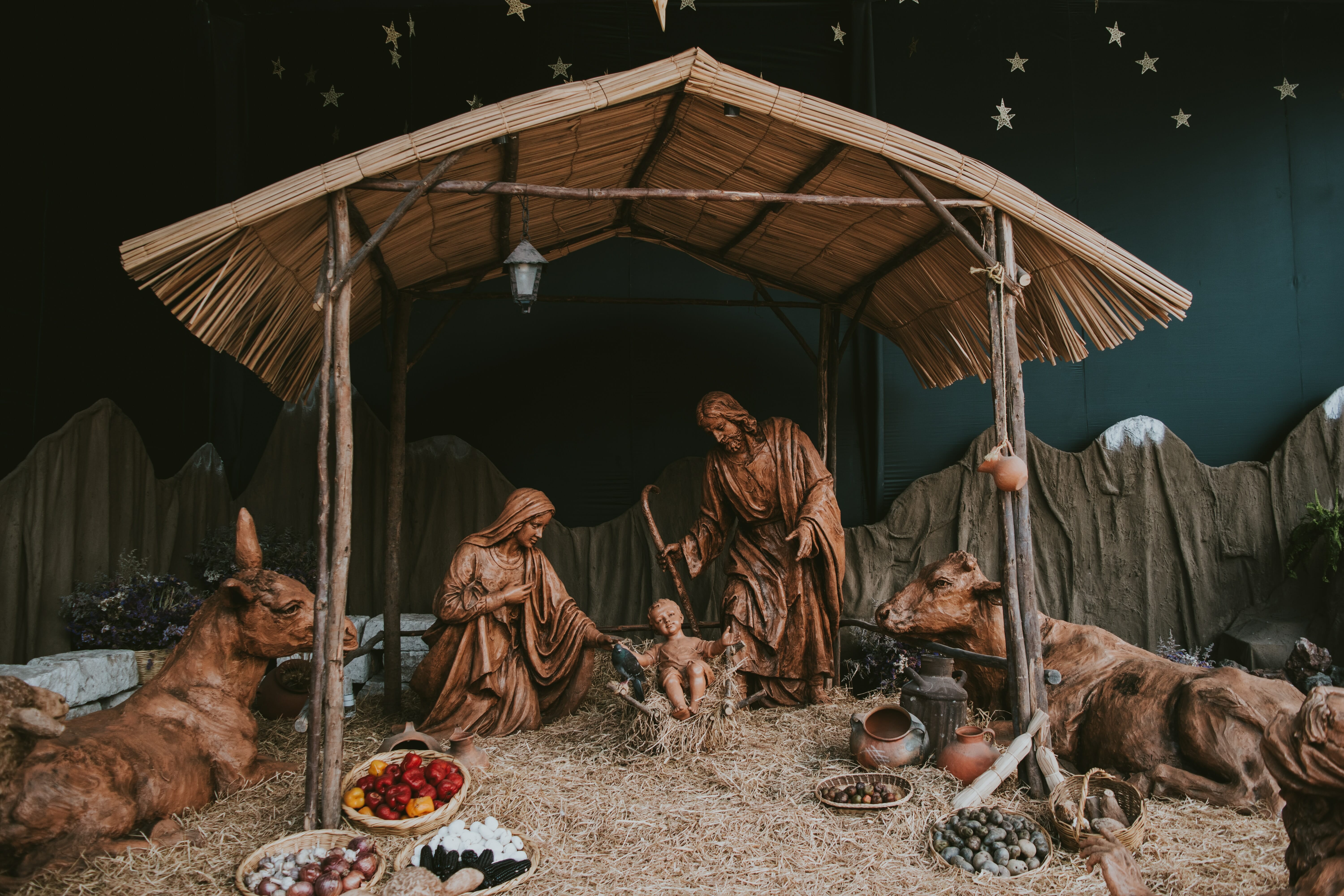
Photo by Walter Chávez on Unsplash
The grief of Advent
Claire Hein Blanton
December 4, 2019
When our son was seven months old, he was “asked” to play baby Jesus in our church’s nativity. A naturally smiley and social child, Jack imbued less of an angelic, sleeping baby Jesus and more of one that I had to constantly keep from lunging out of the manger. As the children came to “see the baby,” many dropped off birthday cards, cards which we only had the chance to read after the fact. Amidst the many “Happy Birthday” and “I love you Jesus” cards, one emerged as surprisingly profound. It read “Happy birthday Jesus, thank you for dying for me.”
Admittedly, at the time, the discord between “happy birthday” and death struck me as odd, but I grew to appreciate the truth in this card. Advent is treated too often as only a joyous period of expectation, culminating in loud proclamations and celebrations that Jesus is born. If we only celebrate his birth, however, we miss the larger picture of Advent. To understand Advent, we must reflect on Lent. In Lent we rightly prepare, through penitential acts and sacrifices, to journey alongside Christ to the cross and then wait for the miracle of Easter. We grieve that our sin leads to this sacrifice. Lent is the vigil that culminates in Easter. We would do well to treat Advent as a period of grief that culminates in Christmas.
To understand Advent, we must reflect on Lent. Lent is the vigil that culminates in Easter. We would do well to treat Advent as a period of grief that culminates in Christmas.
What would we grieve though? The fundamental reason for Christmas mirrors that for Easter. God’s good creation has gone astray and needs dramatic rescue. This is still true today. In my hometown of Houston alone there is plenty to grieve – almost three quarters of students in Houston Independent School District qualify as economically disadvantaged, one in five individuals in the Houston area are considered to live at or below the poverty level, Texas leads the country in accidental shootings by children, and almost thirty thousand individuals seek some level of homeless services per year in the Houston area. If Christmas brings good news to those on the margins, Houston does not appear to have benefitted. We grieve in Advent that we are still a long way off from creation being returned to a “good” condition. We grieve alongside those that remain trapped within systems that keep them on the margins.
We also grieve that death is still a reality within our world. This type of grief is particularly acute in our family this year. I suffered a miscarriage over the summer and my mother passed away in September after a difficult struggle with cancer. Christmas, and even Easter, do not remove the sting of knowing someone is not there. Surely both give us hope that death does not have the final word, but grief is still a painful reality. My family sat vigil with my mother for almost three weeks in the intensive care unit. To sit vigil is to relinquish control over the situation at hand. There is nothing one is capable of doing other than waiting. Even in her death and the loss of our unborn daughter, I still sit in a quasi-vigil on this side of eternity, waiting until the grief lessens, waiting for the promise of God to be manifest more concretely.
Advent and Lent are both seasons of grieving that creation is not what it should be even still—but they are both seasons marked by a joyous end that God has not abandoned us.
Advent and Lent are both seasons of grieving that creation is not what it should be even still—but they are both seasons marked by a joyous end that God has not abandoned us. When we lived in Northern Scotland, a colleague preached an Advent sermon once. He remarked that to live in Aberdeen is to walk through the darkness of Advent before beholding the light of Christmas. Due to its location, Aberdeen becomes dramatically darker over the course of December, sometimes only getting six hours of sunlight a day until after the winter solstice, a date that conspicuously tracks very close to Christmas. Their world gets darker and then, around Christmas, starts getting brighter again. Of course, the world remains moored in darkness for weeks after that as the seasons gradually shift—but each day brings more light.
This is perhaps, the posture we should take to Advent. Let us grieve that all is still not right with the world, that darkness still inhabits so many areas – whether in the global, systemic way or in the personal sense of loss. But let us also rejoice, as Aberdonians do, that light does find a way to break in and that our celebrations of Christmas and Easter both stand as reminders that the light of God continues to enter our world with the promise that one day grief and darkness will be something of our past. Let us sit vigil and wait.
Claire Hein Blanton is an ordained Baptist minister in Houston, Texas. She is currently studying for her PhD in systematic theology and ethics from the University of Aberdeen.
The views expressed are those of the author and not necessarily those of American Baptist Home Mission Societies.


